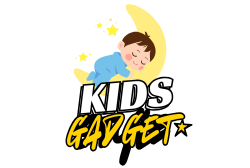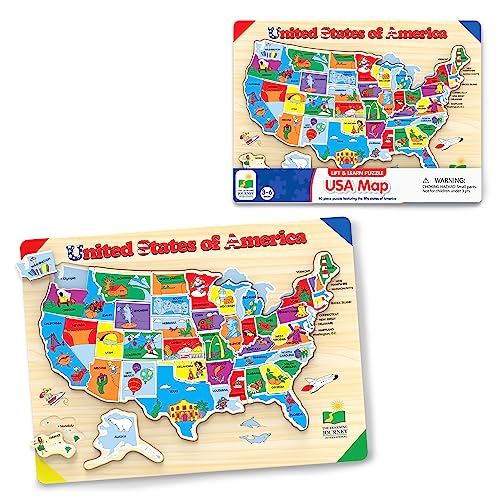Finding the ideal environment for a child with autism spectrum disorder (ASD) is a top priority for many families. It’s not just about a place to live; it’s about accessing the best support services, educational programs, and community resources that can truly help a child thrive. While the journey to finding the best states for autism kids involves considering many factors, one important aspect is building a solid foundation of general knowledge and understanding of the world around us.
Engaging children with autism through interactive learning tools can be incredibly beneficial. These tools can help develop cognitive skills, fine motor abilities, and a deeper understanding of geography, which can indirectly aid in the broader conversation about different states and their unique offerings. Learning about states and their characteristics can be a fantastic way to introduce geographical concepts, prepare for potential moves, or simply expand a child’s worldview in a structured and engaging manner.
We’ve rounded up five fantastic learning aids that can make exploring the United States a fun and educational experience for kids, especially those with autism. These resources are designed to be interactive, visually stimulating, and excellent for developing key developmental skills. Let’s dive into these top picks that make learning about our diverse nation an adventure.
The Learning Journey Lift & Learn Puzzle – USA Map

This classic wooden puzzle offers a hands-on way for younger children to explore the geography of the United States. Its brightly colored pieces and raised textures make it particularly appealing and easy for little hands to grasp, promoting tactile exploration. Beyond just fitting shapes, it encourages children to identify states and start building their foundational knowledge of the USA, which can be an excellent precursor to understanding the nuances of different regions, including potentially identifying the best states for autism kids in the future.
- Key Features:
- 40 brightly colored, raised puzzle pieces depicting the 50 states.
- Measures 15” L x 0.4” W x 11” H, weighing 1.63 lbs.
- Promotes research, tactile, and motor development.
- Supports problem-solving abilities and independent play.
- Regularly safety tested and compliant with toy safety regulations.
- Pros:
- Excellent for fine motor skill development and hand-eye coordination.
- Durable wooden construction withstands repeated use.
- Bright, engaging colors capture and hold attention.
- Helps build confidence through achievement.
- Cons:
- May be too simple for older children already familiar with states.
- Doesn’t include state capitals or additional facts.
- User Impressions: Parents frequently praise this puzzle for its durability and the satisfying tactile experience it provides. Many note that their children with autism enjoy the repetitive nature of fitting the pieces and the clear visual distinctions of each state, making it a favorite for focused, independent play.
- See it on Amazon here
SYNARRY Large USA Wooden Puzzles for Kids Ages 3-5

The SYNARRY Large USA Wooden Puzzle goes a step beyond simple state recognition, integrating capitals, major geographical landmarks, and even state animals into its design. This comprehensive approach makes learning about the USA a rich, multi-layered experience. Crafted with safety and durability in mind, its polished edges and vivid, printed-on-wood patterns ensure a long-lasting and safe educational tool, perfect for developing problem-solving skills and geographic knowledge.
- Key Features:
- Colorful wooden puzzle for learning 50 states, capitals, landmarks, and state animals.
- Made from high-quality, non-toxic wood with carefully polished edges.
- Sturdy and bright design with patterns printed directly on wood (no peeling paper).
- Includes movable paper illustrations underneath for reference.
- Finished size: 14.8 * 10.1 inches.
- Pros:
- Combines multiple learning elements (states, capitals, landmarks, animals).
- Exceptional durability and safety for young children.
- Bright, non-fading colors are highly engaging.
- Reference illustrations support independent learning.
- Cons:
- Might require adult guidance initially due to the amount of information.
- Specific landmarks might be small or hard to discern for some children.
- User Impressions: Reviewers highlight how much children enjoy the added detail beyond just state shapes. Many parents appreciate the sturdiness and vibrant colors, noting that it holds up well to enthusiastic play and helps kids absorb a lot of information without feeling overwhelmed. It’s often recommended for its educational depth.
- See it on Amazon here
QUOKKA Puzzles for Kids Ages 4-6 – 3 Set Toddler

Why settle for one puzzle when you can have three? The QUOKKA 3-Set Wooden Puzzle offers an incredible value, including not only a detailed USA map puzzle but also a world map and a solar system puzzle. This expansion provides a broader scope of learning, allowing children to explore both national and global geography, as well as astronomy. The direct printing on wood ensures vibrant, scratch- and water-resistant designs, perfect for inquisitive hands and lasting through countless play sessions.
- Key Features:
- 3-in-1 set: USA map, World map, and Solar System puzzles.
- USA map includes 42 laser-cut, manually polished pieces with capitals and famous places.
- World map features 38 big pieces with countries, oceans, and animals.
- Solar system puzzle fosters learning about planets.
- Direct printing on wood for detailed, vibrant, scratch- and water-resistant images.
- Pros:
- Offers diverse educational content in one package.
- Highly durable and resistant to wear and tear.
- Engaging for a wide range of interests, from geography to space.
- Supports hand-eye coordination, patience, and problem-solving skills.
- Cons:
- Some children may find the multiple options overwhelming initially.
- The solar system puzzle, while educational, deviates from the “states” theme.
- User Impressions: Families love the versatility of this set, reporting that it keeps children engaged for extended periods. Parents of children with autism appreciate the clear images and the tactile satisfaction of the wooden pieces, finding the multi-themed approach a great way to explore various interests while developing focus.
- See it on Amazon here
Imagimake Mapology United States Flash Card Puzzle

The Imagimake Mapology set is more than just a puzzle; it’s an interactive learning system designed to make discovering the USA incredibly engaging. Combining an EVA foam puzzle with magical game cards and a “Super Swiper,” this product turns learning about states, capitals, and fun facts into an exciting quest. It’s a brilliant tool for enhancing communication, problem-solving, and decision-making skills, making it a fantastic addition to any homeschooling curriculum or family learning time.
- Key Features:
- EVA foam frame puzzle with 50 precisely cut state-shaped pieces.
- 52 magical Game Cards, including instructional guide and Washington DC card.
- Includes a Super Swiper for revealing hidden facts.
- Learn over 750 facts about states, capitals, flags, and more.
- Portable, travel-friendly box.
- Pros:
- Highly interactive and gamified learning experience.
- Comprehensive factual content beyond just state names.
- Excellent for developing a wide range of cognitive and communication skills.
- Engaging for diverse learning styles, including visual and kinesthetic.
- Cons:
- Might require more setup and explanation than a simple puzzle.
- Some smaller pieces could be easily misplaced.
- User Impressions: Users rave about the innovative approach to learning. The “Swipe & Reveal” feature is particularly popular, providing a fun, sensory element that keeps kids excited. Many parents note that it’s an exceptional tool for homeschoolers, transforming geography lessons into captivating adventures and helping children with autism grasp complex information in an accessible way.
- See it on Amazon here
U.S. States Flash Cards for Kids | 50 State Geography

Sometimes, the simplest tools are the most effective. These U.S. States Flash Cards offer a comprehensive yet accessible way for kids to learn about all 50 states. Each card is packed with engaging designs and key information – from state names and capitals to state birds and flowers – making learning feel like a game. The color-coded regions aid visual recognition and geographic understanding, proving to be an invaluable resource for classroom use, travel, or focused learning at home.
- Key Features:
- Explore all 50 states with name, number, capital, statehood date, abbreviation, nickname, major cities, state bird, and state flower.
- Bright, engaging designs and kid-friendly layouts.
- Large card size (5” W x 3.7” H) for easy handling.
- Color-coded by Region for enhanced geographic understanding.
- Includes bonus cards: U.S. Regions, State Flags, District of Columbia, and Summary.
- Pros:
- Comprehensive facts presented clearly and concisely.
- Visually appealing and easy for kids to engage with.
- Portable and perfect for on-the-go learning.
- Color-coding helps with regional understanding.
- Cons:
- Less interactive than a puzzle, relying more on memory.
- May require more direct instruction from an adult.
- User Impressions: Parents and educators consistently praise these flashcards for their detailed yet digestible information and vibrant illustrations. They’re particularly effective for visual learners and children who benefit from structured, repetitive learning. Many highlight their utility for quick reviews and as a solid foundation for understanding state-specific facts, which can be useful when researching the best states for autism kids.
- See it on Amazon here
Frequently Asked Questions (FAQ)
Finding the best states for autism kids involves more than just geographical knowledge; it’s about understanding the support systems in place. Here are some common questions families ask.
Q1: What are the key factors to consider when looking for the best states for autism kids?
A1: When evaluating states, families should prioritize access to high-quality autism therapy services (like ABA, speech, occupational therapy), strong special education programs within public schools, comprehensive healthcare coverage (including Medicaid waivers if applicable), robust community support networks, and laws that advocate for individuals with autism.
Q2: How do state policies impact families of children with autism?
A2: State policies significantly influence the availability and funding of essential services. Look into state-specific autism mandates for insurance coverage, the presence of state-funded autism programs, waitlists for services, and educational laws regarding individualized education programs (IEPs) and inclusion. Some states have more progressive and comprehensive support systems.
Q3: Are there specific regions in the U.S. known for being more supportive for autism families?
A3: While it can vary even within states, some regions and states are frequently cited for their autism-friendly resources, often in the Northeast (e.g., Massachusetts, New Jersey), parts of the Midwest (e.g., Wisconsin), and certain areas of the West (e.g., California, Washington). These states often have higher funding, more specialized providers, and stronger advocacy groups.
Q4: How important is public school support for children with autism?
A4: Public school support is incredibly important. Research a state’s commitment to special education, teacher training in autism-specific strategies, availability of sensory-friendly classrooms, and the success rates of students with autism transitioning to higher education or employment. A strong IEP process and effective inclusion practices are vital.
Q5: What kind of community resources should I look for beyond therapies and schools?
A5: Beyond therapies and schools, look for communities that offer sensory-friendly events (movies, museums), recreational programs specifically for children with autism, support groups for parents, job training and employment programs for adults with autism, and general community acceptance and understanding of neurodiversity.
Q6: Can these learning aids help my child prepare for a move to a new state?
A6: Absolutely! Engaging with these map puzzles and flashcards can help a child with autism develop a visual and conceptual understanding of different states. This can make the idea of moving to a new, unfamiliar place less abstract and more concrete, helping to reduce anxiety and build excitement about exploring their new environment. Learning about the geography of their new home state can be a comforting and empowering activity.

